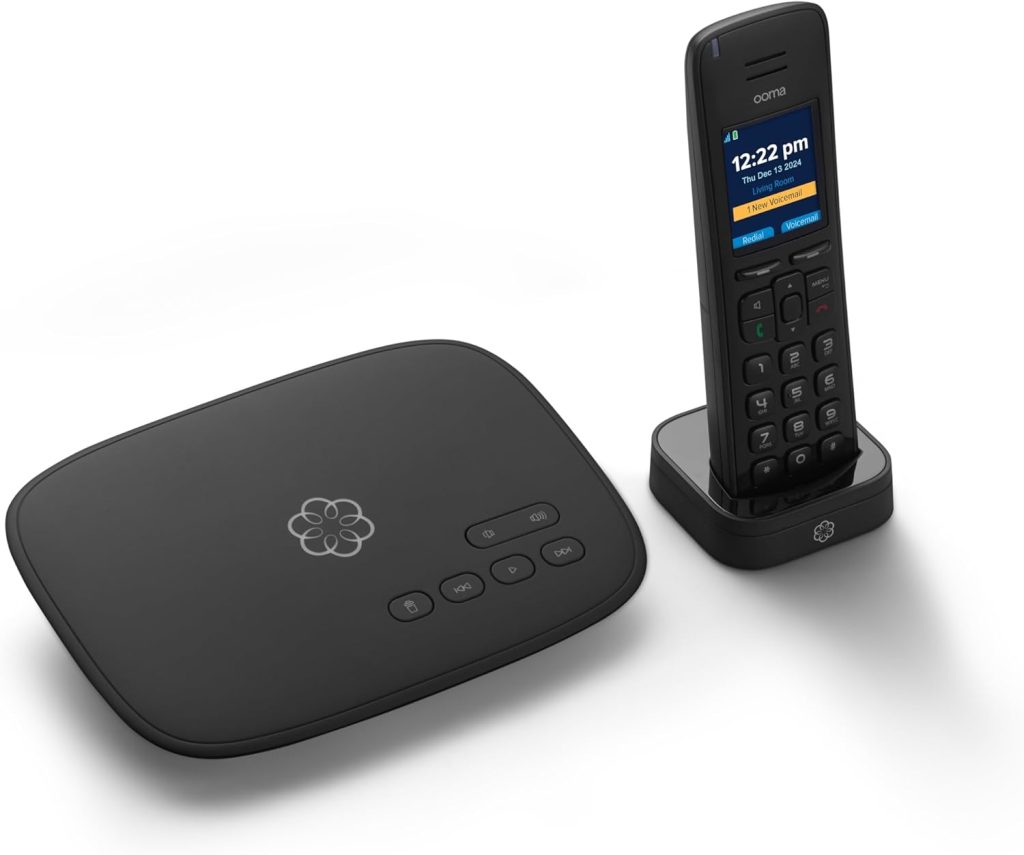
VoIP (Voice over Internet Protocol) phones are devices that use the internet to make and receive phone calls, instead of traditional analog phone lines. These phones are integral to modern business communication systems, offering flexibility, advanced features, and cost savings. Here are the key features and descriptions of VoIP phones.
Key Features of VoIP Phones:
- Connectivity:
- Ethernet Ports: Connect to the network via standard Ethernet cables. Some models support Power over Ethernet (PoE) to deliver power and data over a single cable.
- Wi-Fi: Some VoIP phones have built-in Wi-Fi for wireless connectivity, offering greater flexibility in placement.
- Call Management:
- Call Forwarding: Redirects calls to another number or extension.
- Call Transfer: Allows transferring calls to another extension or phone number.
- Call Waiting: Notifies users of incoming calls while on another call.
- Call Hold: Places the current call on hold.
- Caller ID: Displays the caller’s information on the phone’s screen.
- Voicemail: Integrated voicemail system for managing missed calls and messages.
- Advanced Features:
- Auto Attendant: Automated system to route calls to the appropriate department or extension.
- Conference Calling: Supports multiple participants on a single call, often with dedicated buttons for easy access.
- Do Not Disturb (DND): Silences incoming calls and notifications for uninterrupted work.
- HD Voice Quality: High-definition audio for clearer and more natural-sounding calls.
- Display and Interface:
- LCD Screens: Color or monochrome screens for displaying caller ID, call status, menus, and other information.
- Touchscreen: Some advanced models feature touchscreens for easier navigation and control.
- Programmable Keys: Customizable buttons for quick access to frequently used functions or extensions.
- Integration and Compatibility:
- Unified Communications (UC) Integration: Seamlessly integrates with other UC tools like email, instant messaging, and video conferencing platforms.
- CRM Integration: Links with customer relationship management (CRM) software for enhanced customer service and productivity.
- Multi-Platform Support: Compatible with various VoIP service providers and protocols (e.g., SIP).
- Security:
- Encryption: Ensures secure voice communication through protocols like SRTP (Secure Real-Time Transport Protocol).
- VPN Support: Allows secure connections over public networks.
- Firewall and NAT Traversal: Built-in security features to prevent unauthorized access and ensure reliable communication.
- Additional Features:
- Bluetooth: For connecting wireless headsets and other devices.
- USB Ports: For connecting external devices, such as headsets or flash drives.
- Multiple Lines: Support for multiple lines and extensions, useful for managing several calls simultaneously.
Description:
VoIP phones leverage the power of the internet to provide robust and flexible communication solutions. Unlike traditional phones that rely on analog signals, VoIP phones convert voice into digital packets and transmit them over IP networks. This technology allows for a wide range of features that enhance communication efficiency and reduce costs.
Types of VoIP Phones:
- Desktop VoIP Phones:
- Description: Standard desk phones with a variety of features suitable for office environments.
- Features: Ethernet connectivity, multiple line support, programmable keys, and often HD voice quality.
- Use Case: Ideal for employees who spend most of their time at their desks.
- Cordless VoIP Phones:
- Description: Handheld phones that offer the convenience of mobility within the workplace.
- Features: DECT technology for secure and stable wireless communication, long battery life, and range.
- Use Case: Suitable for environments where mobility is essential, such as warehouses and retail spaces.
- Conference VoIP Phones:
- Description: Designed for conference rooms to facilitate group calls with multiple participants.
- Features: High-quality microphones, speaker systems, and often 360-degree audio pickup.
- Use Case: Ideal for business meetings and collaborative sessions.
- Softphones:
- Description: Software applications that turn computers or mobile devices into VoIP phones.
- Features: All standard VoIP features, accessible through a user-friendly interface on a PC, tablet, or smartphone.
- Use Case: Perfect for remote workers and businesses with bring-your-own-device (BYOD) policies.
Benefits of VoIP Phones:
- Cost Savings: Lower costs for long-distance and international calls compared to traditional phone systems.
- Scalability: Easy to add or remove lines and extensions as the business grows or changes.
- Flexibility: Use the same phone number and system regardless of location, ideal for remote work and mobile employees.
- Advanced Features: Access to features like video calling, presence information, and unified messaging that are not available on traditional phone systems.
- Integration: Seamlessly integrates with other business applications and systems for enhanced productivity and efficiency.
VoIP phones are an essential component of modern business communication, offering advanced features, flexibility, and cost savings that traditional phone systems cannot match.







